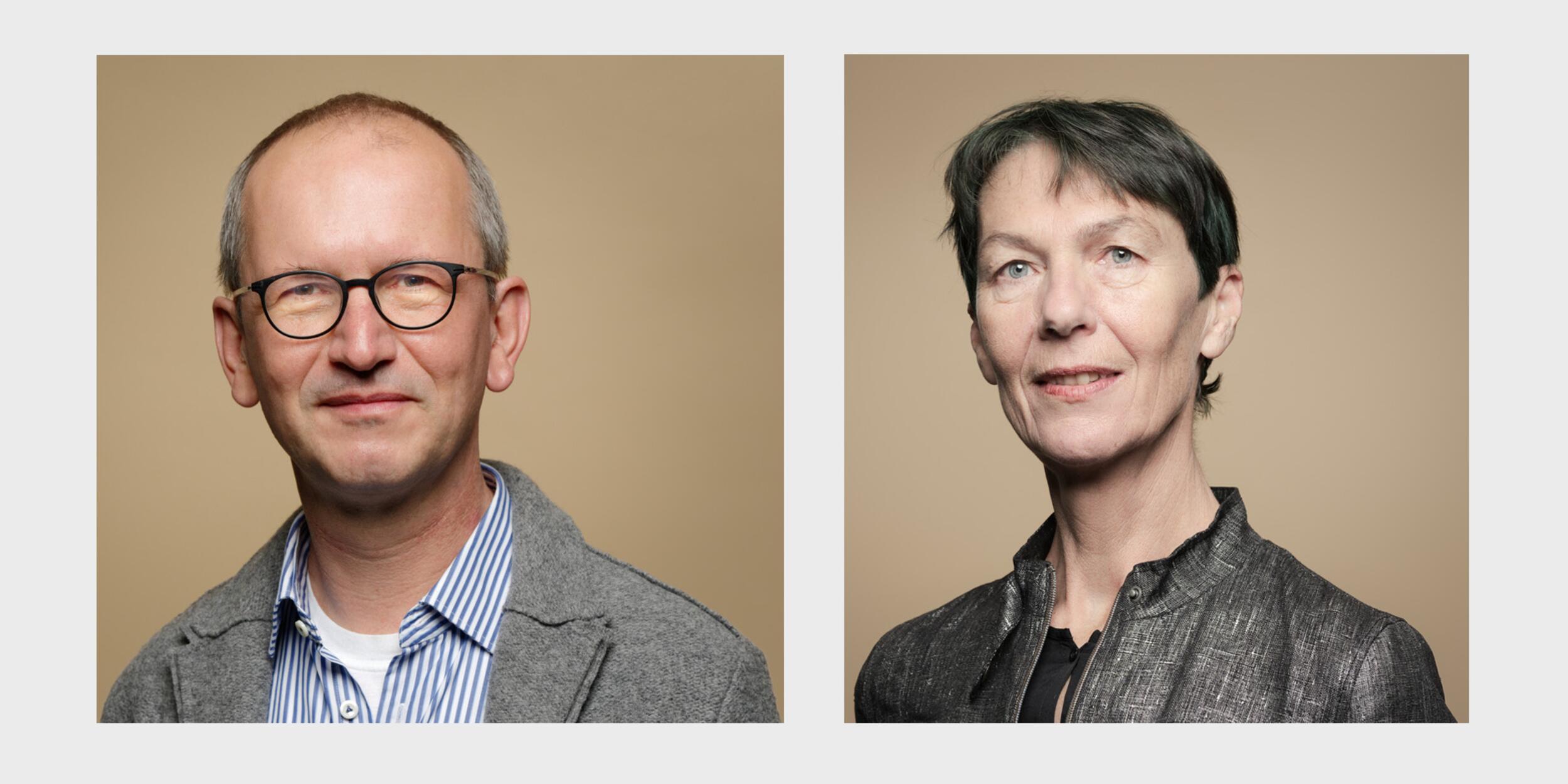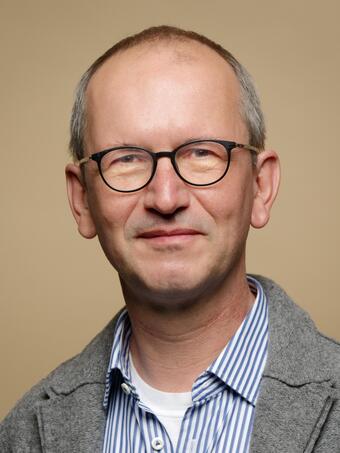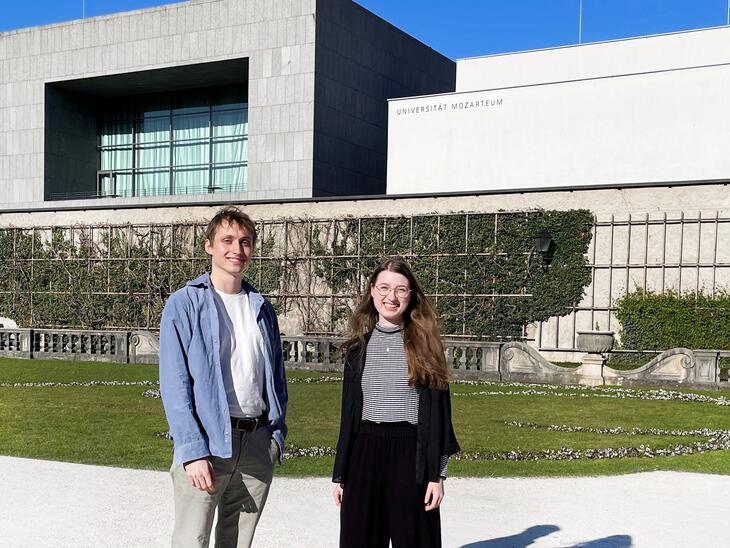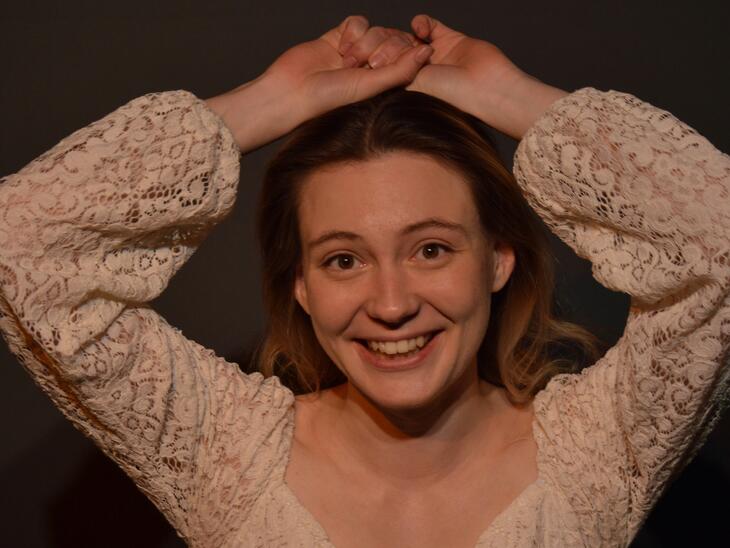Autonomy under threat?

© Universität Mozarteum
With the takeover of the University of Theater and Film Arts Budapest by a government-affiliated foundation a movement is starting in Hungary that has long become a European issue - the preservation of the autonomy of university and education. A conversation with Christoph Lepschy and Hildegard Fraueneder.
It is about sharpening
critical eye, for
vigilance in a
much broader sense.
— Hildegard Fraueneder
UN: Mr. Lepschy, already in 2010 Viktor Orbán's second government proclaimed its "Attack on Culture". Why is the resistance just now so loud? Christoph Lepschy: Obviously with the destruction of the autonomy of SZFE (University of Theater
and Cinematography Budapest) a threshold has been crossed, which especially the theater and film professionals do not want to accept. For about ten years Orbán's government has been replacing staff in cultural institutions and directing them, where it can, towards national conservative and
anti-European content and propaganda . Many colleagues and students are now no longer prepared to
go along with
;the erosion of the constitutionally guaranteed freedom of
science and art
that has been going on for years.
And because the threat to autonomy is also becoming an increasingly pressing issue in the democratic-political context of Europe, there is a broad wave of international solidarity for the Hungarian colleagues. UN: What exactly happened in Budapest? Lepschy: When the University of Theatre and Cinematography was taken over by the government-affiliated foundation the rectorate, the senate, many professors and heads of departments resigned. The next step was massive protests by students and faculty,
who occupied the university for about 60 days and jointly established a "Free Republic of Learning." They gave themselves a democratic constitution while the pressure from the government kept increasing. This has now actually
resulted in
the establishment of a free university
for theater and film arts, which continues to operate independently - with the same teachers and students, but in a different location in Budapest. This is quite an amazing process!
On the one hand, because it happens in the middle of the Corona situation and on the other hand, because it is a precarious and admirably courageous undertaking. A group of European universities, including the University Mozarteum Salzburg, is now trying to help infrastructurally and administratively to
keep
studies going in
Budapest. UN: In the course of the protests against the amendment of the Austrian University Law
, there were repeated warnings of an "Orbánisation". What do you say to this? Hildegard Fraueneder: I think it is extremely important that educational and democratic policy issues that usually do not find a significant public resonance - currently the situation in Budapest
or the UG amendment in Austria - are carried forward with all force. Without linking them genuinely with each other, however. The press reports that
prophesied
an "Orbánisation at Austria's universities"
are also reproached for the senates to this day. In fact, one need not even make the link, because in reality it is about something much more fundamental. Namely, the
sharpening of the critical eye, vigilance in a much broader sense. UN: A revised draft university law is now
;available.
Have the many statements
and protest actions brought something?" Fraueneder: Some paragraphs have been corrected, but still it is sobering.Because apart from the already known reduction of the extent of minimum study performance from 24 to 16 ECTS few of the
central criticisms of the students have been taken into account. The idea of a set of laws with the goal of efficiency, of studying as quickly as possible and following through, that has basically
remained the
same
. Also, most of the criticisms, which have been brought by the Senates have hardly been incorporated. In addition, really countless comments have been made about externally funded projects and fixed-term teaching contracts, opposing the changes to Section 109, which governs chain contracts. They ve also been ignored. UN: And the famous matter of the reappointment of the rector? Lepschy: That was conditionally corrected, yes. However, the proposal was also so outrageous, that we really didn t quite know what was happening to us. And it remains peculiar even now, because the Senate is back in on the reappointment, but only a simple majority is required now. So the direction is still clear: one wants to weaken the elected bodies co-determination rights will be restricted. A small detail, which has not been discussed so much, shows well the underlying intention of political influence: there was an attempt to be able to staff university councils party-politically in the future. The valid University Act explicitly states that functionaries of a political party may not be members of university councils. In the draft amendment then suddenly the addition appeared that this only applies at federal and state level. That means that party functionaries at the local or European level could have been delegated as university councillors - that has now been taken back. Nevertheless, the idea behind it is remarkable. And the amendment still breathes this spirit. Fraueneder: Yes, and the tendency to strengthen the rectorates definitely runs through it. Because there are many such innovations, such as the competence to issue guidelines and the right of initiative, with which the rectorates are to influence the design of the curricula in the future, and lastly the delegation of an appointments officer on the part of the rectorate. With this strengthening of the rectorates goes a weakening of the instruction-free collegial bodies and the co-determination possibilities of the university members and to a certain extent also the democratic constitution of the university in favor of a more authoritarian management structure. Lepschy: Exactly, and now of course the word "authoritarian" is not used, one speaks of "efficient management structure." This is about a primarily economically oriented idea of university. On the one hand, as many students as possible should graduate in as short a time as possible, i.e., quickly become workers . On the other hand, however, the control system, as the saying goes, is to be streamlined. These two tendencies are related to each other. They are in the same spirit of economic efficiency. When we think about education in this way, however, it also has to do with a certain limited idea of democracy Fraueneder: How a society thinks about the function of a university and its democratic constitution is of course crucial. Are universities solely suppliers to the economy? What role does the moment of critique play in such a context that constitutes the democratic polity? How much space is given to it? This can be seen in the context of the weakening of the humanities. UN: Does the goal of freedom, which was just laid down in the development plan of the university take on a different meaning against this background once again?fraueneder: I would say that the concept of freedom, as it appears in the development plan, is very closely linked to art, and in this respect the formulation of the goals of an art university should differ radically from the goals of other universities. In this sense, freedom is also linked to the setting of signs Art sets signs. Of course also critical signs that have a sociopolitical dimension. This concept of freedom together with the sign-making of art I also consider extremely important precisely because it seems so self-evident Lepschy: Well, I also understand it as a reminder of the constitutional articles 17 and 17a. Science and its teaching as well as art and its teaching are free. That is a threatened freedom and it is fundamental to keep that in mind and to think about what that means. Especially in terms of what the task of criticism is in a community, in a society. A university, especially an art university, has a central task of debate, of reflection and also of direct criticism. An (art) university is not a place beyond, but a thoroughly social place. And it is directly linked to all the questions that a society poses. All information about the protest against the UG amendment: BILDUNG-BRENNT.AT (First published in Uni-Nachrichten / Salzburger Nachrichten on March 6, 2021)
and Cinematography Budapest) a threshold has been crossed, which especially the theater and film professionals do not want to accept. For about ten years Orbán's government has been replacing staff in cultural institutions and directing them, where it can, towards national conservative and
anti-European content and propaganda . Many colleagues and students are now no longer prepared to
go along with
;the erosion of the constitutionally guaranteed freedom of
science and art
that has been going on for years.
And because the threat to autonomy is also becoming an increasingly pressing issue in the democratic-political context of Europe, there is a broad wave of international solidarity for the Hungarian colleagues. UN: What exactly happened in Budapest? Lepschy: When the University of Theatre and Cinematography was taken over by the government-affiliated foundation the rectorate, the senate, many professors and heads of departments resigned. The next step was massive protests by students and faculty,
who occupied the university for about 60 days and jointly established a "Free Republic of Learning." They gave themselves a democratic constitution while the pressure from the government kept increasing. This has now actually
resulted in
the establishment of a free university
for theater and film arts, which continues to operate independently - with the same teachers and students, but in a different location in Budapest. This is quite an amazing process!
On the one hand, because it happens in the middle of the Corona situation and on the other hand, because it is a precarious and admirably courageous undertaking. A group of European universities, including the University Mozarteum Salzburg, is now trying to help infrastructurally and administratively to
keep
studies going in
Budapest. UN: In the course of the protests against the amendment of the Austrian University Law
, there were repeated warnings of an "Orbánisation". What do you say to this? Hildegard Fraueneder: I think it is extremely important that educational and democratic policy issues that usually do not find a significant public resonance - currently the situation in Budapest
or the UG amendment in Austria - are carried forward with all force. Without linking them genuinely with each other, however. The press reports that
prophesied
an "Orbánisation at Austria's universities"
are also reproached for the senates to this day. In fact, one need not even make the link, because in reality it is about something much more fundamental. Namely, the
sharpening of the critical eye, vigilance in a much broader sense. UN: A revised draft university law is now
;available.
Have the many statements
and protest actions brought something?" Fraueneder: Some paragraphs have been corrected, but still it is sobering.Because apart from the already known reduction of the extent of minimum study performance from 24 to 16 ECTS few of the
central criticisms of the students have been taken into account. The idea of a set of laws with the goal of efficiency, of studying as quickly as possible and following through, that has basically
remained the
same
. Also, most of the criticisms, which have been brought by the Senates have hardly been incorporated. In addition, really countless comments have been made about externally funded projects and fixed-term teaching contracts, opposing the changes to Section 109, which governs chain contracts. They ve also been ignored. UN: And the famous matter of the reappointment of the rector? Lepschy: That was conditionally corrected, yes. However, the proposal was also so outrageous, that we really didn t quite know what was happening to us. And it remains peculiar even now, because the Senate is back in on the reappointment, but only a simple majority is required now. So the direction is still clear: one wants to weaken the elected bodies co-determination rights will be restricted. A small detail, which has not been discussed so much, shows well the underlying intention of political influence: there was an attempt to be able to staff university councils party-politically in the future. The valid University Act explicitly states that functionaries of a political party may not be members of university councils. In the draft amendment then suddenly the addition appeared that this only applies at federal and state level. That means that party functionaries at the local or European level could have been delegated as university councillors - that has now been taken back. Nevertheless, the idea behind it is remarkable. And the amendment still breathes this spirit. Fraueneder: Yes, and the tendency to strengthen the rectorates definitely runs through it. Because there are many such innovations, such as the competence to issue guidelines and the right of initiative, with which the rectorates are to influence the design of the curricula in the future, and lastly the delegation of an appointments officer on the part of the rectorate. With this strengthening of the rectorates goes a weakening of the instruction-free collegial bodies and the co-determination possibilities of the university members and to a certain extent also the democratic constitution of the university in favor of a more authoritarian management structure. Lepschy: Exactly, and now of course the word "authoritarian" is not used, one speaks of "efficient management structure." This is about a primarily economically oriented idea of university. On the one hand, as many students as possible should graduate in as short a time as possible, i.e., quickly become workers . On the other hand, however, the control system, as the saying goes, is to be streamlined. These two tendencies are related to each other. They are in the same spirit of economic efficiency. When we think about education in this way, however, it also has to do with a certain limited idea of democracy Fraueneder: How a society thinks about the function of a university and its democratic constitution is of course crucial. Are universities solely suppliers to the economy? What role does the moment of critique play in such a context that constitutes the democratic polity? How much space is given to it? This can be seen in the context of the weakening of the humanities. UN: Does the goal of freedom, which was just laid down in the development plan of the university take on a different meaning against this background once again?fraueneder: I would say that the concept of freedom, as it appears in the development plan, is very closely linked to art, and in this respect the formulation of the goals of an art university should differ radically from the goals of other universities. In this sense, freedom is also linked to the setting of signs Art sets signs. Of course also critical signs that have a sociopolitical dimension. This concept of freedom together with the sign-making of art I also consider extremely important precisely because it seems so self-evident Lepschy: Well, I also understand it as a reminder of the constitutional articles 17 and 17a. Science and its teaching as well as art and its teaching are free. That is a threatened freedom and it is fundamental to keep that in mind and to think about what that means. Especially in terms of what the task of criticism is in a community, in a society. A university, especially an art university, has a central task of debate, of reflection and also of direct criticism. An (art) university is not a place beyond, but a thoroughly social place. And it is directly linked to all the questions that a society poses. All information about the protest against the UG amendment: BILDUNG-BRENNT.AT (First published in Uni-Nachrichten / Salzburger Nachrichten on March 6, 2021)





